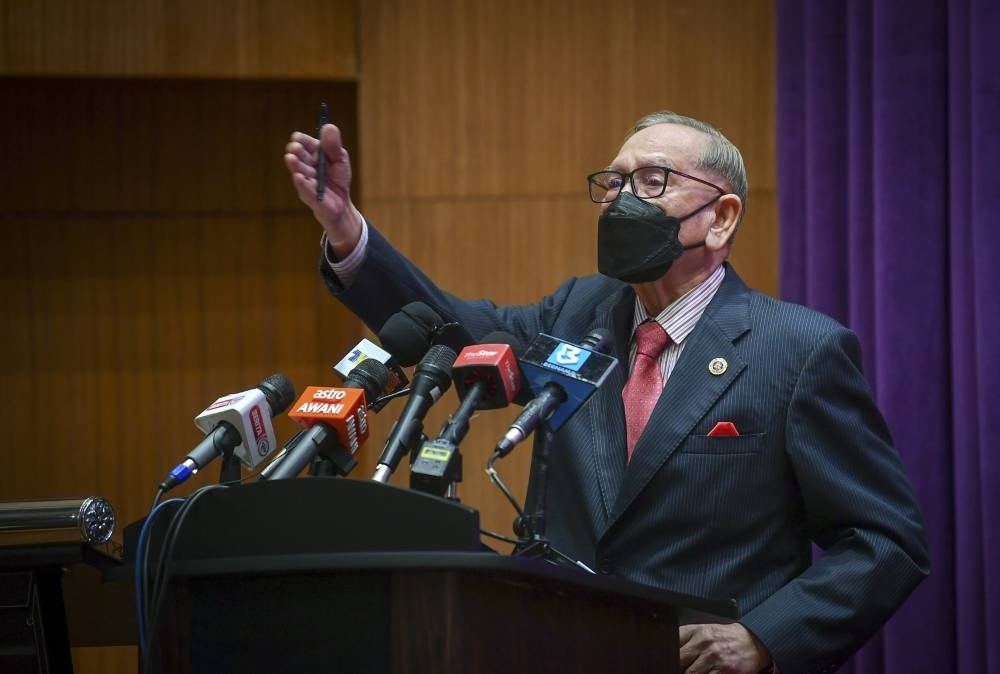IDEAS: Abu Zahar's explanation falls short to address public concern over MACC's integrity
DANIAL DZULKIFLY
SHAH ALAM -- Tan Sri Abu Zahar Ujang Abu Zahar's explanation to exonerate Malaysian Anti-Corruption Commission (MACC) chief Tan Sri Azam Baki of any alleged impropriety falls short in addressing public concerns of integrity against the anti-graft body, said the Institute for Democracy and Economic Affairs (IDEAS).
In a statement today, IDEAS had questioned the due process of how MACC's Anti-Corruption Advisory Board (ACAB), of which Abu Zahar is the chairman, had conducted the investigation against Azam of an alleged conflict of interest in the course of carrying out his duties.
While ACAB finally relented to public outcry and subsequently carried out a special meeting on November 24, 2021, to discuss the matter, IDEAS however questioned why the decision made to absolve the Azam was based on a single meeting, without a thorough investigation.
"In our view, if such a conclusion is merely based on the explanation of Tan Sri Datuk Sri Azam Baki, then ACAB has not carried out their duties properly and this is not an exemplary move by an organisation that is the primary body tasked to oversee the MACC.
"We also regret the delay in announcing the results of the meeting to the public immediately after it took place. Had the ACAB held the press conference immediately after the special meeting, instead of waiting for more than a month, the public outcry on this matter could have been avoided.
"IDEAS calls for the ACAB to transparently elaborate upon the process through which this conclusion was reached. As well, it is important for the body to disclose which government policy or code of conduct they have relied on in clearing the MACC Chairman of any wrongdoing,'' said the statement.
In the same statement, IDEAS chief executive Tricia Yeoh also stated that it is imperative for the government to set clear boundaries on what constitutes a conflict of interest among civil servants.
"Parliamentary oversight over MACC is even more imperative than ever. In addition, it is time the government introduces a clear conflict of interest laws and regulations for all public servants with regards to assets they are allowed to own.
"There are also legitimate questions being raised as to the legality of the share purchase, which must be answered,'' she said.
Apart from ACAB, there are four other external bodies that are expected to operate as mechanisms of check and balance for the MACC which are the Special Committee on Corruption, Complaints Committee, Consultation & Corruption Prevention Panel, and the Operations Review Panel.
“As a critical institution that upholds integrity in the nation, it is essential that the MACC and its oversight bodies embody the highest standards. As such, the oversight bodies tasked to provide accountability over the commission must consider themselves the bastions of transparency.
"Even the slightest delay in acting on a complaint can sway public opinion. IDEAS looks forward to more transparency in regards to this matter, and calls for more information to be communicated transparently to the public,'' added Yeoh.
Earlier today, in a press conference Abu Zahar had explained that the ACAB had cleared Azam of any wrongdoing of alleged ownership of publicly traded stocks.
This comes after allegations made by former MACC Consultation and Corruption Prevention Panel member Edmund Terrence Gomez that Abu Zahar and the ACAB had failed to investigate the issue thoroughly.
Abu Zahar had also vehemently denied such accusations.
ENDS














